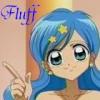Messages : 10
Langue: English
Fluff (Voir le profil) 27 juin 2005 17:07:25
(^.^)
Mike59 (Voir le profil) 28 juin 2005 17:41:30
2nd meaning : lovely, nice = beleta, ĉarma, gracia
Go on studying !! I'm sure you'll improve if you use the dictionary (La vortaro) ... Enjoy yourself in Esperanto, just as I do !
JoyGerhardt (Voir le profil) 30 juin 2005 00:19:27

Machjo (Voir le profil) 2 juillet 2005 03:30:56
aminda
or for intelligent:
inteligenta
trojo (Voir le profil) 2 juillet 2005 03:48:21

I hear "cute" used to mean clever (in a sort of smart-aleck way) sometimes, e.g. "I was trying to be cute" (= I was trying to be witty). Ruza would probably be a better fit for that usage than inteligenta, in my opinion.
For physically cute I would probably go with karesema (cuddly) for something like a baby seal or a kitten and perhaps beleta (pretty) for a person.
Qwertie (Voir le profil) 18 juillet 2005 06:20:27
Machjo, are you saying that aminda DOESN'T mean "loveworthy"? For lovely and nice I would have used "bela" and "afabla", but since I am using the crappy vortaro here, maybe I've learned incorrect meanings for all of the words.
trojo (Voir le profil) 24 juillet 2005 21:48:52
The word "cute" means something slightly different to every English speaker, I'm sure. Ask a dozen native English speakers to explain the difference between "cute" and "pretty" and you will probably get a dozen different answers. Thus, attempting to capture the exact, precise meaning of that word in Esperanto (or any other language) is a futile task, because the meanings of words are so very rarely rigorously precise even in their own language, and because the words of two different languages almost never have a direct, one-to-one correspondance.
For me, even though it isn't specified in the dictionary, "cute"--both in the sense of "beautiful" (cute1), and in the sense of "clever" (cute3)--has a connotation of childishness. A sixteenth-century painting by some long-dead master can't be cute--even if it's beautiful--but a kindergartener's finger-painting could be cute. Teenagers may describe each other as cute, but since teens are still essentially children in my worldview, this is not a "usage problem" for me; they can be beautiful in their child-like way, and thus "cute". So for me, bela and beleta are fine for describing both beautiful babies and young-folk because it shouldn't have to be specified that children are beautiful in a child-like way. Kiel alie geknaboj povas beli sed beli geknabe?
So, if I were forced to choose or coin an Esperanto phrase that captured my own sense of "cute" most accurately, I would probably go with geknabe bela or infane bela something similar.
erinja (Voir le profil) 26 juillet 2005 21:42:30
relsqui (Voir le profil) 11 août 2005 13:32:24
sarcasmdude1292 (Voir le profil) 24 août 2005 23:17:11
Beleta. Formed by adding -et- (small, weak, lesser) to bela (beautiful, lovely). Thus, beleta.






